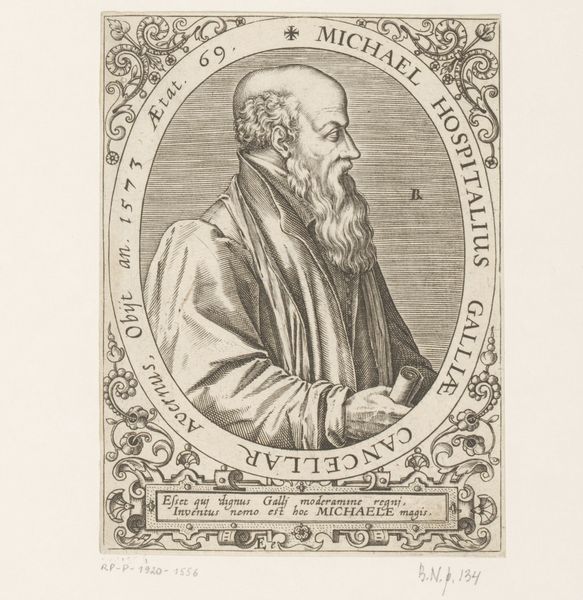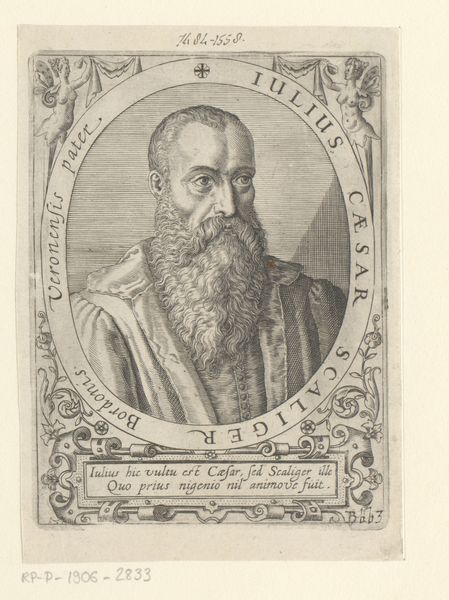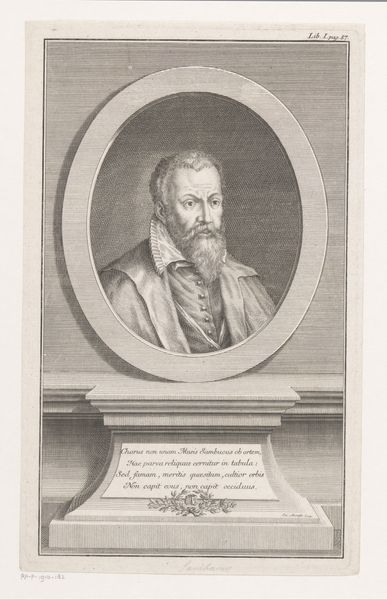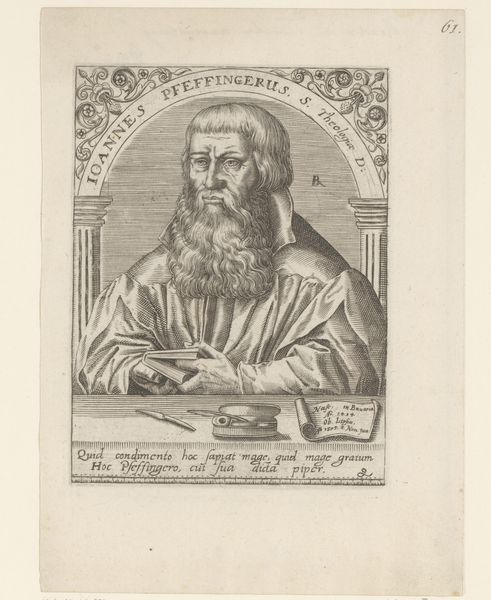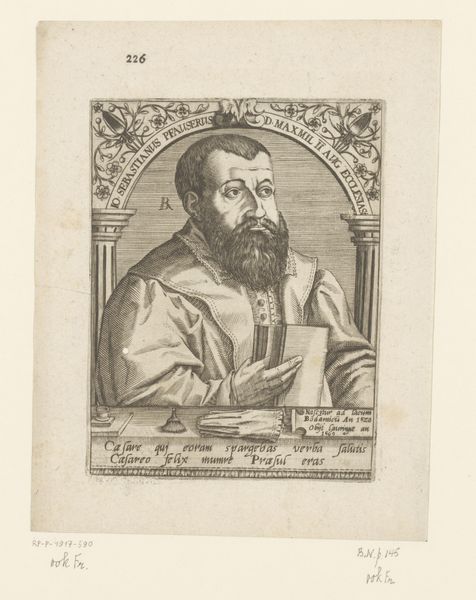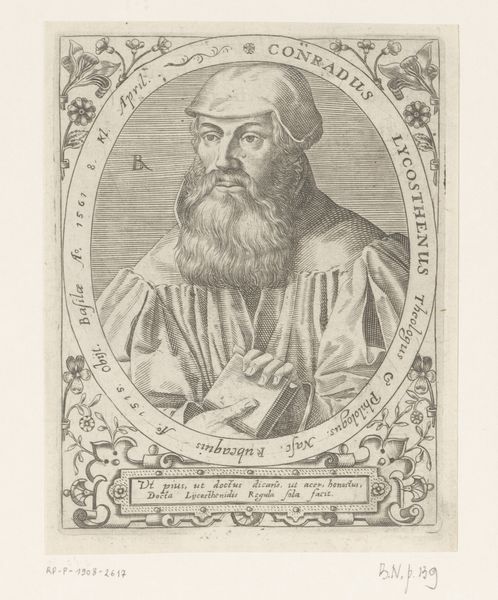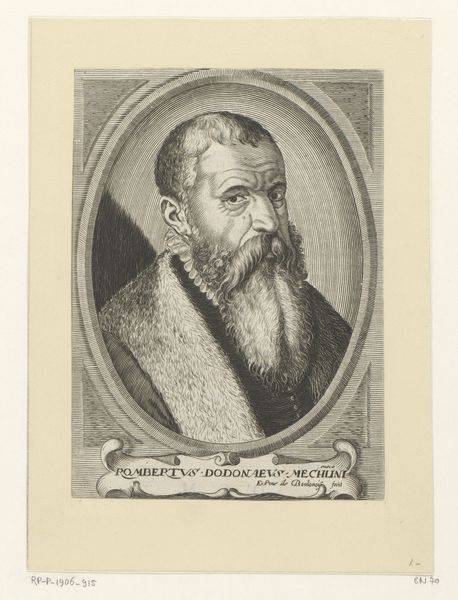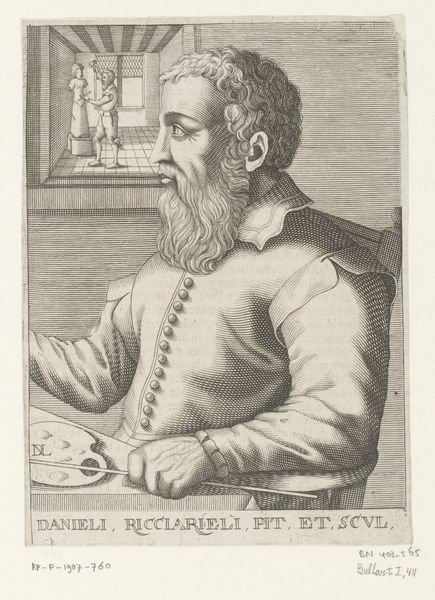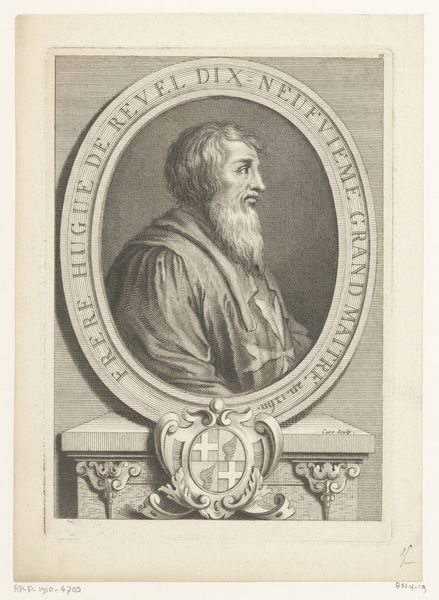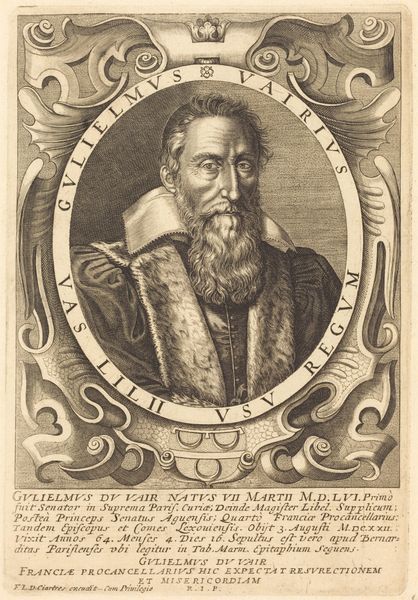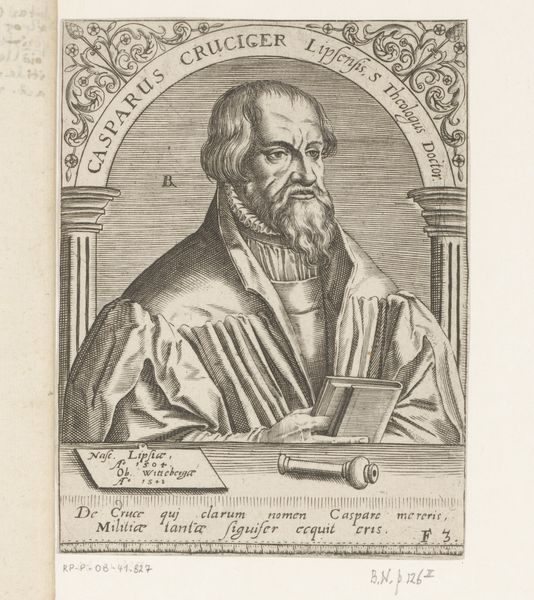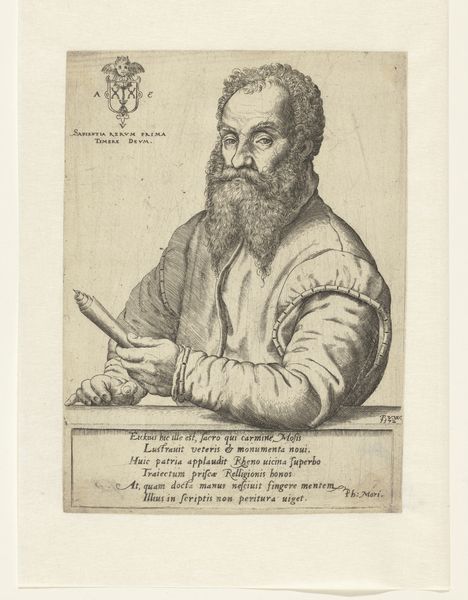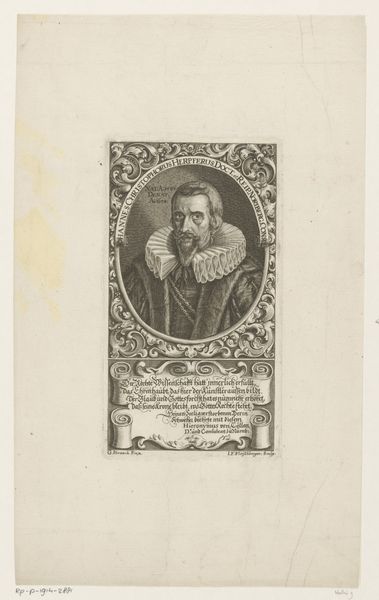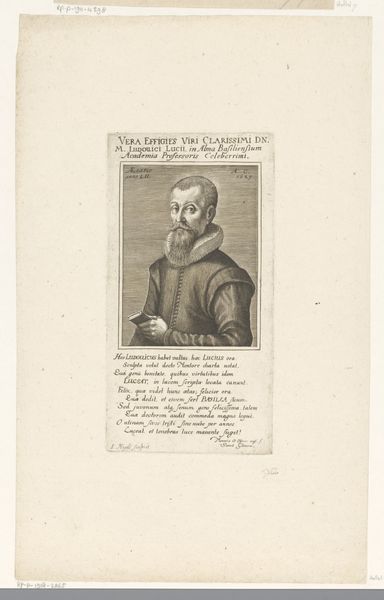
print, engraving
#
portrait
# print
#
old engraving style
#
11_renaissance
#
history-painting
#
engraving
Dimensions: height 139 mm, width 105 mm
Copyright: Rijks Museum: Open Domain
This is Robert Boissard’s portrait of Andreas Vesalius, made around 1600 using an engraving technique. This process involves cutting lines into a metal plate, inking the surface, and then using a press to transfer the image onto paper. The quality of a print like this depends on the engraver's skill. Look at the density of lines used to model Vesalius's face, and the decorative elements of the frame. These lines were all incised by hand, demanding incredible precision. The printed image, therefore, embodies a significant amount of skilled work, and time. The material and the way it has been worked gives the portrait its aesthetic. But beyond that, the print also shows the mechanics of early capitalism at work. The printmaking industry was an important part of the period’s economy. Prints like this helped spread images and ideas across Europe, and they did so through systems of labor, trade, and distribution that are still very much with us today. Appreciating this helps us to understand the full cultural value of this image.
Comments
No comments
Be the first to comment and join the conversation on the ultimate creative platform.
